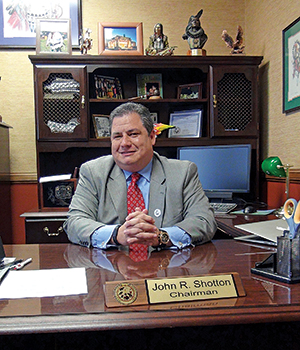 Joshua Wrenn needed money to make the January payment for his Jeep Cherokee. The truck driver and aspiring country singer from Madison, N.C., got $800 within minutes from a website he found on his phone. When he called to check his balance a few weeks later, he was told he had electronically signed a contract to pay back $3, 920 to a company owned by an American Indian tribe. “I didn’t ever see a contract, not one time, ” says Wrenn. “If I was that stupid, to sign for $3, 000 for an $800 loan, I might as well bury myself alive.”
Joshua Wrenn needed money to make the January payment for his Jeep Cherokee. The truck driver and aspiring country singer from Madison, N.C., got $800 within minutes from a website he found on his phone. When he called to check his balance a few weeks later, he was told he had electronically signed a contract to pay back $3, 920 to a company owned by an American Indian tribe. “I didn’t ever see a contract, not one time, ” says Wrenn. “If I was that stupid, to sign for $3, 000 for an $800 loan, I might as well bury myself alive.”
Photograph by Zeke Faux/BloombergThe tribe chairman
Payday loans—costly, short-term advances for those with poor credit—are illegal in North Carolina and about a dozen other states. That’s driving online lenders to Indian reservations, where tribes say sovereign immunity shields them from state interest rate regulations.
American Web Loan, Wrenn’s payday lender, is one of the biggest in the U.S. Its offices are in four double-wide trailers behind the Otoe-Missouria tribe’s 7 Clans Paradise Casino in Red Rock, Okla., off a two-lane highway lined with wheat fields. John Shotton, chairman of the Otoe-Missouria, says his impoverished tribe needs the profits, which fund such social services as lunches for the elderly.
It turns out other people are profiting from the business inside the trailers as well. Revenue from American Web Loan flows through the tribe to MacFarlane Group, owned by Mark Curry, according to a presentation the company gave to potential private equity investors last year. Curry is in turn backed by a New York hedge fund, Medley Opportunity Fund II.
 The payday loan sites generate more than 0 million a year for Curry’s company. A tribal official says the tribe keeps about
The payday loan sites generate more than 0 million a year for Curry’s company. A tribal official says the tribe keeps about
1%
The presentation, filed in federal court in Illinois by an investment banker who advised MacFarlane Group and is suing the company over fees, shows that the company generates more than 0 million a year in revenue from American Web Loan and another website owned by the Otoe-Missouria. The tribe keeps about 1 percent of that, according to Charles Moncooyea, the tribe’s vice chairman at the time the deal with Curry was struck in 2010. “All we wanted was money coming into the tribe, ” Moncooyea says. “As time went on, I realized that we didn’t have any control at all.”
Shotton says that’s not true. The tribe owns the websites, hires outside help when needed—as it does with its four casinos—and keeps all the profit, he says. Curry says he’s only a consultant, the presentation was prepared by an outside firm, and many figures in it are inaccurate estimates. While he declines to say whether he does business with the Otoe-Missouria, he says he does work with some American Indians and that the arrangement is legal. “They control these businesses very clearly, ” Curry says. “We provide, basically, call center services for clients that do online financial services.”
Photograph by Zeke Faux/BloombergThe casino
Other payday businesses have made deals with American Indian tribes over the past few years as regulators went after those incorporated offshore or in states that don’t cap rates. Online tribe-owned lenders made about billion in loans last year, according to estimates from Jefferies Group. “What we’re seeing is this cat-and-mouse game, ” says Bruce Adams, general counsel for the department of banking in Connecticut, one of at least nine states that have taken civil actions against payday lenders linked to Curry since 2008. “What they’re doing now is, frankly in my view, committing criminal usury and hiding behind this claim of sovereign immunity.” Curry says the number nine is not accurate, without elaborating.
 American Web Loan typically charges every two weeks per 0 borrowed, equivalent to about 700 percent a year, contracts obtained by Bloomberg show. One contract shows that a borrower taking out $700 will pay back a total of $3, 430 over eight months unless the principal is repaid early. Payments are taken directly from borrowers’ bank accounts on paydays.
American Web Loan typically charges every two weeks per 0 borrowed, equivalent to about 700 percent a year, contracts obtained by Bloomberg show. One contract shows that a borrower taking out $700 will pay back a total of $3, 430 over eight months unless the principal is repaid early. Payments are taken directly from borrowers’ bank accounts on paydays.
Photograph by Zeke Faux/BloombergRed Rock, Okla.
MacFarlane, which Curry owns through a trust, generated $47.3 million in profit from 2009 through mid-2013, according to the investor presentation and a deposition in the case. Curry says he’s providing a service that customers want. “They’re making very educated decisions, ” he says. “Being an entrepreneur, what motivates me is to find solutions for things.”
Curry met the Otoe-Missouria’s tribal council at its headquarters in Red Rock, about 95 miles south of Wichita, about five years ago, Moncooyea says. “They put on a dog-and-pony show about how good they are, how much money they were bringing in, ” says Bat Shunatona, then the tribe’s treasurer.
A typical American Web Loan costs
$30
every two weeks per
$100
borrowed
The 3, 100-member tribe needed the money. In Red Rock, population 283, weeds grow through abandoned buildings. Some people live in government-surplus mobile homes that were raffled off by the tribe. A deserted grain storage tower looms over the only other business in town, a combination thrift store and diner run by the Baptist church. Gambling revenue, a key source of the tribe’s income, was threatened by planned casinos closer to Wichita. The council asked few questions during Curry’s presentation and granted a license to American Web Loan in February 2010, according to Moncooyea, who was put in charge of the company. “I didn’t do much at all, just looked at the checks and passed them on, ” he says, adding that he’d hoped to learn the business and eventually cut Curry out. “We were just a pawn.”
Federal Trade Commission records show that more than 1, 000 borrowers have complained about the website. Wrenn, the North Carolina truck driver, was one of them. After the company claimed he’d signed a contract agreeing to pay 795 percent interest, Wrenn closed his bank account and complained to the state’s attorney general, who wrote to the tribe on his behalf in May. Two weeks later, a reply came from the Otoe-Missouria Consumer Finance Services Regulatory Commission. The head of the commission, Clayton Farrell, who once worked as a debt collector for Curry’s companies, said he was the only one with jurisdiction. “American Web Loan shares in the tribe’s sovereign immunity and therefore is not subject to state regulation, ” Farrell wrote on May 19. “After reviewing Mr. Wrenn’s complaint and a copy of the loan agreement contract we find no violation.”
Interesting facts
Additional information



|
PAYDAY LOANS (Green/Yellow) Flutter Feather Banner Flag (11.5 x 3 Feet) Lawn & Patio (Vista Flags)
|

|
Green Payday And Loans Outdoor Neon Sign 20" Tall x 37" Wide x 3.5" Deep Office Product (The Sign Store)
|








